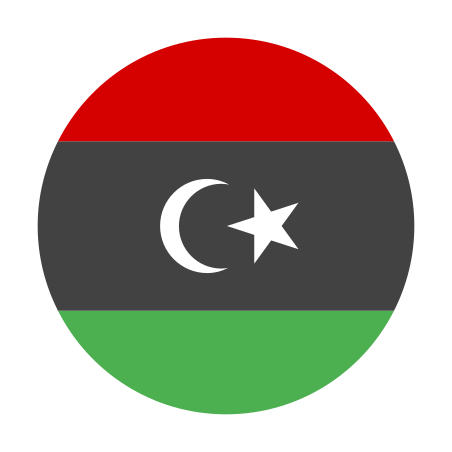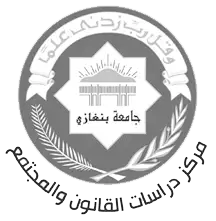Justice seeking and access to justice in Libya: Victims of murder by armed group members in Bani Walid
During Libya's 2011-12 revolution and armed conflict, people were murdered on all sides. Attaher Elhaj shows how in Bani Walid, the ensuing justice journeys of surviving relatives have been profoundly shaped by the alleged political allegiances of their murdered relatives and those who murdered them.
This case study looks into the justice journeys of families of people who were murdered during the violent conflict in Bani Walid in 2011-2012. For some essential context: Bani Walid, or Warfalla, is a Libyan city some 185 kilometers southeast of Tripoli. The city counts some 90.000 people, most of whom are part of the Warfalla alliance which is composed of Arab and Amazigh tribes. The city was generally affiliated with the regime of Muammar Gaddafi (1969-2011), and was one of the last to fall during the February 17 revolution. In 2011 and 2012, the city saw violence between supporters and opponents of the Gaddafi regime, both between the
inhabitants of Bani Walid and between Bani Walid and neighbouring cities which were more clearly anti-Gaddafi.
Things escalated from July 2012 when a famous Misratan revolutionary, Omran Shaban, was kidnapped, shot, and tortured near Bani Walid. Shaban had become famous for being among those who had caught Gaddafi. After highlevel mediation efforts, Shaban was released in September, but he was in critical condition and died in a Paris hospital within weeks. In response, the General National Congress (GNC) issued Resolution 7 calling for the arrest of those responsible for Shaban’s death. GNC-affiliated forced invaded Bani Walid. These events contributed to the weakening of the position of those who supported the former regime – the majority in Bani Walid – vis-à-vis the revolutionaries.
This case study builds on interviews with the relatives of six men who were killed during the 2011-12 violence, and with local experts. The study focuses particularly on three cases. First, Mabrouk was opposed to the Gaddafi regime and three of his relatives were killed by former regime forces despite not participating in hostilities. Second, Abdul and Masoud were supporters of the Gaddafi regime, and their sons died fighting against the rebels. Third, an anonymous man whose son was killed working as a security detail for a tribal
delegation sent to reconcile the cities of Zintan and Al-Mashashiya.
These cases are the starkest example in this research of political affiliation shaping access to justice. They also reveal how politicised legal concepts like victimhood and injustice have become. Supporters of the Gaddafi regime considered that whatever harm came to the rebels or revolutionaries in 2011-12 was not an injustice, but rather the result of their attempts to sabotage Libya or bring it under a colonial yoke. Conversely, supporters of the February 17 revolution found that Gaddafi-loyalists got what they deserved for standing with a tyrant against Libyan people’s quest for freedom and dignity.
Both parties see themselves as victims of oppression and injustices. Indeed, both groups have suffered killings, displacement, and looting. To make matters more complicated, both loyalists and revolutionaries claim that they acted on the orders given by those who they deem as the legitimate authority. The adjudication of wrongdoing is complicated by the contested legitimacy of Libyan authorities and armed factions at the time and, to a lesser extent, to this day.
Legal recognition and remedies have tended to be accorded to the victims who belong to the victor’s group. For example, those who died fighting for the revolution were granted the status of ‘martyr’ and their relatives were entitled to the moral and material benefits that resulted from this recognition. Those who died fighting for the old regime, however, were not given this status by the state. Yet in the eyes of their relatives, these men died to defend their homeland, so how can he not be a martyr? In sum, those in Bani Walid who ‘lost’ the battle – the Gaddafi loyalists – also lost control over, and confidence in, state institutions. Some of them reported feeling
now like second-class citizens. And so while Gaddafi-loyalist families also filed lawsuits to demand their rights, they invested especially in the non-state track through tribal social councils.
All interviewed justice seekers in Bani Walid agreed that Libyan media have had a malign influence especially during war and its aftermath. Specifically, they argued that media have stoked fires, spread misinformation, and generally fueled conflicts and widened rifts. For example, Hajj Abdul said that some TV-channels representing the February 17-revolution describe Muammar Gaddafi in the most heinous ways, thereby insulting his supporters and complicating a future national reconciliation. A human rights activist, Mohsen, argued that Libyan TV-channels have prioritised the personal and ideological interests of their owners rather than the common good and more harmonious views. The situation is hardly better online and on social media, where electronic armies represent unknown and sometimes international interests, without the slightest concern for the interests of Libyans.
The justice journeys of these three surviving relatives, indicate that a remedy for these individual cases may remain elusive as long as there is no wider national reconciliation or restoration of the social fabric. The justice seekers also hoped that Libya will overcome the winner-takes-all approach to justice. Critically, respondents differed on the best method to achieve reconciliation. Some emphasised that perpetrators ought to be punished, while others stressed that all sides would have to make concessions and forget the past.
This summary was published in Suliman Ibrahim, Bruno Braak and Jan Michiel Otto (2022) 'The Long and Winding Road: Justice seeking and access to justice in Libya', Leiden/Benghazi: Van Vollenhoven Institute/Benghazi Centre for Law and Society Studies.




